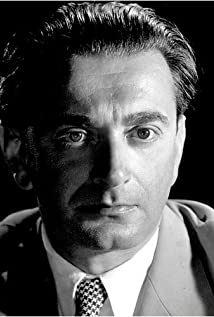Miklós Rózsa
A child prodigy, Miklos Rózsa learned to play the violin at the age of five and read music before he was able to read words. In 1926, he began studying at the Leipzig Conservatory where he was considered a brilliant student. He obtained his doctorate in music in 1930. Moving to Paris the following year, Rózsa had much of his own chamber music performed, as well as his 'Variations on a Hungarian Peasant Song' and his 'Symphony and Serenade for Small Orchestra'. However, he soon became disenchanted with meagre wages for playing classical music in concert. Attempting to change his financial situation, Rózsa managed to secure a contract with Pathe records to compose music for use in intermissions between movies. This was to be his first step in entering the more lucrative field of film composition. In 1935, Rózsa went to London after being invited by the Hungarian Legation to write the music for a ballet. The resulting work, 'Hungaria', so impressed the director Jacques Feyder that he set up a meeting with fellow Hungarian Alexander Korda, who then commissioned him to write an opulent score for the romantic drama Knight Without Armor (1937). Rózsa later recalled having to learn to write music for films 'the hard way': "I bought one German and one Russian book on the technique of film music and everything I learned from these books was absolutely wrong! But then I had long conferences with Muir Mathieson, who was the music director and conductor for Korda, and somehow I learned."
While writing the score for El ladron de Bagdad (1940), Rózsa relocated to Hollywood where he remained gainfully employed over the next four decades. An expert at orchestration and counterpoint with a great flair for the dramatic, he often concentrated on the psychological aspects of a film. One of his innovations was the use of a theremin for the famous dream sequence in Cuéntame tu vida (1945) which accompanies Salvador Dalí's transcendental nightmare images. Few composers have managed to convey suspense and tension as powerfully as Rózsa with his eerily haunting scores for some of the Golden Era's best films noir (Pacto de sangre (1944), El extraño caso de Martha Ivers (1946), Los asesinos (1946), La ciudad desnuda (1948)) or his lush, stirring music for spectacular epics (Quo Vadis (1951), Ivanhoe (1952), El Cid (1961)). In addition to winning three Oscars for his film work, Rózsa also continued as a prolific composer of classical music, including Violin and Piano Concertos, a Concerto for String Orchestra, a Sinfonia Concertante and Notturno Ungherese (influenced, respectively, by Stravinsky and Bartók). In 1945, he was appointed Professor of Composition at the University of Southern California where also lectured on the subject for many years.

